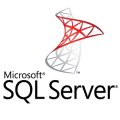Entrepreneurship inherently comes with risks. The entire ideology of entrepreneurship is based on taking on financial risks in the hope of profit. The budget is the prediction of income and expenditure over a definite time ahead. Business organizations utilize funding for the efficient working of the company, explains Eric Dalius. A budget is an action plan for the financial sector of a business. Entrepreneurship inherently comes with risks. The entire ideology of entrepreneurship is based on taking on financial risks in the hope of profit. All you need to do is avoid these money mistakes at all costs. Eric J Dalius, a leading entrepreneur and philanthropist, says these are the money mistakes you need to watch out for.
Starting Without a Budget Plan
It would not be an exaggeration to say that your budget plan determines the direction of your business. A budget plan allows you to estimate the future income and expenses of your company. That way, you will be able to keep track of the inflow of money. So chalk out a business plan, set periodic financial goals, and build along the way. Every business organization must plan a budget to be aware of the cash requirements, revenue earned, and business’s financial condition. Irrespective of the size, every firm must be skillful enough to compute its performance using allowances, emphasizes Eric J Dalius
Here are various types of budgets that companies use to forecast and stabilize their financial health
The majority of the firms use a master budget to project the performance of the entire firm. The master budget highlights the financial plan for the annual accounting period. The master budget encompasses the revenue statement, the balance sheet, and the inflow and outflow of the liquid assets. A firm’s master budget projects every detail of the transaction that the firm will incur.
General expense budget
Another type of budget is the operating budget, which projects income and expenditure made daily. The general expense that a business enterprise incurs is inclusive in the operating budget. According to this budget, the management of business operations is such as costs of goods and services, material costs, and overhead expenses.
Fixed budget
Another type of budget is static or fixed budget, where the numbers are static according to the inflow and outflow infirm. According to EJ Dalius, a static budget is fixed because it is the determining factor for the enterprise’s financial status. The income and expenses for the upcoming year are available in the limited budget. Hence, it takes into account the fixed expenditure, such as the rent of the organization. The static allowance shares a similarity with the master budget as the firm creates it at the beginning of the financial year. They make the required adjustments at the end of the year.
Variable budget
Opposing the static budget is the flexible or variable budget. As the name suggests, the variable budget varies with a change in output. There is a contrast between flexible and static budgets to decipher the difference between planned and actual expenditure. The variable Budget is planned based on multiple situations. A variable budget aids the management of the firm to prepare for high and low profits
Not Keeping the Professional and Personal Financial Accounts Separate
You might be wondering why you need a financial account if you have just started. You might not have even made considerable profits to have two financial accounts. But as your business grows, it might become almost impossible for you to keep track of the money inflow. If you lose track of the expenses, you might find yourself drowning in debt. It is always advised to have a separate account for your business expenses. It need not be a business account, to begin with, but it should keep an eye on the accounts. This would make things a lot simpler as you make space for taxes.
Being Unprepared For Tax Liability
You might already be familiar with taxes. If you had a nine to five job before starting your own business, chances are you have paid them every month. The business taxes are similar to those, only a thousand times more complicated. In the business set up, you need to realize that you are responsible for paying all the taxes. It might seem a little intimidating, but you can simplify things a bit; you can hire an accounting professional to keep things in check.
Making Bootstrapping Your Only Strategy for Growth: E J Dalius
While making use of your existing resources is not bad, that won’t keep your business going. If we take the suggestion of Eric Dalius on this, he says, “Taking a loan isn’t bad for your business. In fact, a well-planned loan can even make your business more profitable”. This is where your budget plan comes in handy. If you have a well-planned budget at hand, it will be easier for you to take a loan and effectively repay it.
Not Saving Enough for a Rainy Day
You might be just starting; saving up is always a good idea to avoid any mishaps. It is advisable to have an emergency fund. You can begin by having a savings account and begin by saving a little at a time. This will help keep your business afloat when things get out of hand.
Final words
Being an entrepreneur is not a cakewalk. Thus there are different types of budget options available for companies. They must make an appropriate choice depending on their requirement. With the marketing industry growing at tremendous rates, there is no room for mistakes. It is always better to keep an eye on pitfalls and chalk out some ways to avoid them. Managing your finances is the most important factor in your business. All we have done is to make things a little easier for you.






